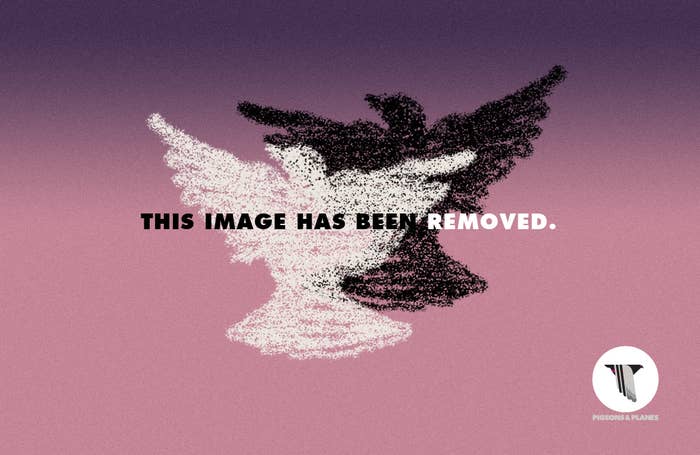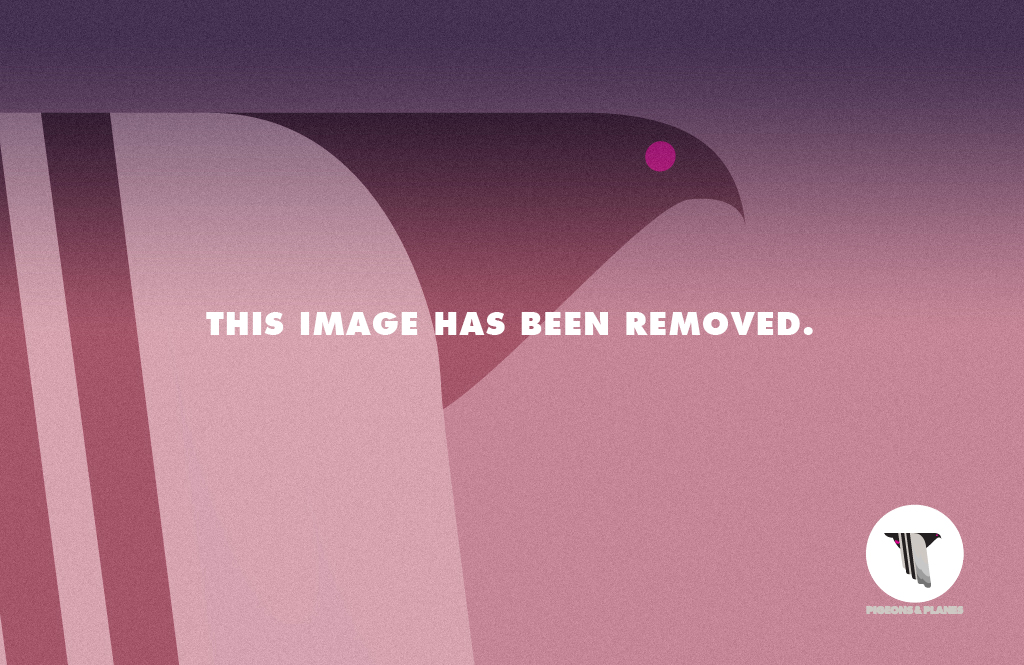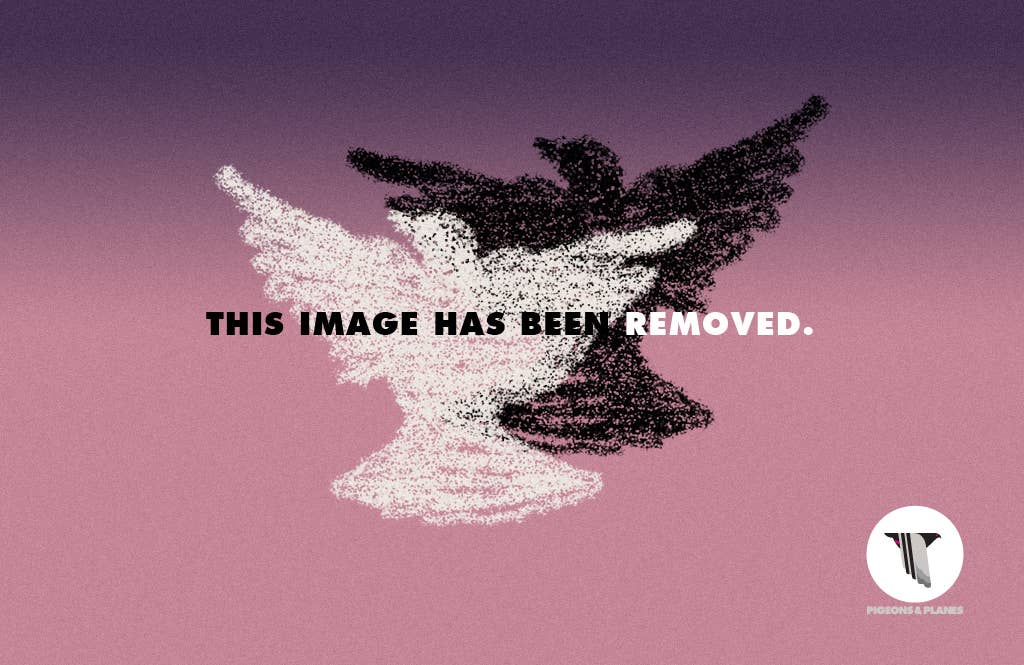1.

Image via Red Bull Music Academy / Photo by Yasuharu Sasaki
Now in its 16th year, Red Bull Music Academy has descended upon Tokyo—a city where art and technology continually fuse with ease and precision—and invited 60 participants to learn and create there. The first wave includes a producer who we’ve written about before, the 23-year-old, Vancouver-based artist Ekali, who joins 29 other musicians in lectures, workshops, and live performances across the city and at the Red Bull offices in Tokyo’s central Shibuya district.
Ekali only started producing music a year ago but has been playing bass and touring with the band Said the Whale for the last four years. Fitting for an RBMA Tokyo participant, his first exposure to music was through video games, in addition to the drum and bass music his sister played when they were growing up. Further inspired by discovering Burial and seeing electronic sets at music festivals, Ekali picked up Logic and got to work.
Like many of the producers he has collaborated with over the past year, Ekali’s music has spread and reached a wide audience on his Soundcloud. Songs like his remix of Tinashe’s Drake cover, “Days in the West,” and an “in progress” EP with Sydney-based aywy., have earned him thousands of plays and followers in a short amount of time. Just as much, the affirmation has encouraged him to continue producing, and his boundless potential is palpable within just a few minutes of speaking with him.
The aywy. collaboration got him an invitation to global collective, Flow-Fi, one of the internet’s most exciting new electronic music labels, which he’s part of in addition to Vancouver’s local Chapel Sound. Both groups represent the vast ambition and reach Ekali has and will continue to have, and as the only Canadian participant at this year’s RBMA, he’s no doubt a rising star in Canada’s thriving electronic music scene, which seems to be currently centered in Montreal.
In our interview with Ekali, we learn about how he got to where he is now, the term “RnBae,” and what he’s learned from being around mentors like Just Blaze, Benjamin Wright, Om’mas Keith, and Kerri Chandler in Tokyo. Listen to his live set from DBS in Tokyo, which took place on October 18, and put him on a bill with fellow participant Lao and the veterans of the night, Mala & Coki and GOTH-TRAD.
Let’s start at the beginning. How did you get into music and to the point where you were playing in bands, and now, playing bass in Said the Whale?
My first experience with music was from playing video games. When I was little I played Final Fantasy a lot, and I was inspired by the music of composer Nobuo Uematsu to start playing. Nobou Uematsu is in the documentary series that Red Bull did, Diggin’ In The Carts, so I was hoping that he would be here lecturing, but it didn’t work out. I mentioned it to one of the RBMA Tokyo organizers, and he asked if I wanted to go to his house! So I might be going to Nobou Uematsu’s house at some point, and that would blow my mind.
From there I started playing violin when I was about 13. I was classically trained for about two or three years, and I wasn’t liking it, so I stopped and started playing guitar. Then I moved over to bass in high school, and I started joining random bands before learning how to play jazz music. I did session jazz bass work in Vancouver for a while, and from there I found a band called Said The Whale. I auditioned to be in it, and I’ve been touring with them for four years now. I started production about a year ago.
Wow, I didn’t realize it had only been a year. What sets did you see at Sasquatch! Festival that made you want to produce electronic music? How would you define that turning point in where you’re going musically?
I saw Com Truise, which was a really cool show. The music I was listening to at the time was slowly gravitating towards more electronic sounds. Growing up, my sister was a huge drum and bass fanatic and played music when I was playing computer games; I would hear it in the background. I never fully got into drum and bass, but it makes sense to me that from hearing it growing up, it was a natural thing for me to get into electronic music.
Would you say that being an instrumentalist has helped you grow as a producer? What equipment and programs do you use?
Yes, monumentally. My experience with playing songs has been important, because in doing that, you learn the dynamics of a song. You learn the structure of playing, so when you’re writing, you’re creating art you understand more immediately from having past experience with various instruments.
I started on Logic for about a month and a half, and then I immediately switched to Ableton. I’ve been using Ableton ever since, and I re-wire Reason into Ableton as a hardware app, doing all my arranging and mixing in Ableton. I don’t use much hardware when I write, because usually I’m on tour with my band. My entire catalogue was actually composed, mixed, mastered, and everything on a pair of headphones and a laptop—that’s it.
So using hardware is a bit of a luxury for me, because I usually don’t have time to sit down and work with it. That’s a big part of what I’ve gotten so far out of the Academy, having these beautiful spaces and having these people to work with who know the gear. Hopefully I can find more time this year to do that.
Would you say you’re a part of a music scene in Vancouver, or do you consider yourself more a part of the global online community? Or both?
Absolutely. There’s a crew in Vancouver called Chapel Sound. It’s quite a large collective with about 15 or 20 people, and it’s definitely a scene boiling underneath the surface. Over the past few years, Vancouver hasn’t had the greatest music scene; it’s been very selective, segregated, and not very communal, but we’re slowly trying to change that. There’s a great new venue in Vancouver called 303 Columbia that hosts a new R&B night. We’re trying to bring out all sorts of different acts from Vancouver who normally don’t get a chance to play. We’re trying to grow the community and make Vancouver a generally better place to be for making and playing music.
That being said, you’re a part of both Chapel Sound and Flow-Fi, which to me are really vibrant online collectives trying to take things beyond just being “labels.” How have these affiliations formed?
The affiliation with Chapel Sound formed through my friend Shawn who’s a vocalist. When I first started making beat music, I was talking to her, and she was digging what I was doing and wanted to work with me. She was involved with the Chapel crew and took me to one of the Chapel Sound nights. Chapel Sound is a broadcast where, in their house, they record DJ sets and stream them live for people all over the world. That was my first time meeting anyone else who made the same kind of music that I was interested in making.
Flow-Fi came about when I reached out to Maximus MMC. I wanted to collaborate with him, and that turned into our Gucci Mane flip that we did. He was a pleasure to work with and is a great guy. Through him I found out about aywy., who founded Flow-Fi. I hit him up about a collaboration that also went really smoothly, the song “Another Girl,” which we finished in only a couple of days, just sending files back and forth. Shortly thereafter, he asked me to join.
I was so surprised at the response to our music, particularly “Another Girl.” When I put it out, I wasn’t like, “People are going to really like this.” It was just like, “Oh this is cool,” but people seem to really resonate with it, which makes me happy. It’s interesting having a label where literally no two people live in the same place. Everyone is in a different city, and most people are in a different country. We’re all pretty close friends, because we constantly talk online and share music and joke. We have a Facebook Flow-Fi group chat, so we always just talk in there.
Can you walk me through how you go back and forth with another producer online to create a song?
Collaboration works differently for everybody; some people work better if they just start of with a drum loop and send it to somebody. Some people work better if they send a melody to somebody. I work best when somebody sends me a melody, and then I can work that into something bigger and start adding drums.
With aywy., it always starts with him sending me a chorus, but a very unfinished chorus. So he’d send me a hook or a lead, and then I’d build around it and stretch it out into a structure and send it back to him. Then he’d add some details, and then he’d send it back to me, and I’d fill the rest of it out, make the chorus pop, and then mix and master it. Depending on who you’re working with, it can either be long and a really tedious back-and-forth, working out every single detail. Or if you jive really well together, collaborations can be done in a day or two. It’s a lot easier if you both work in Ableton, because Ableton has a feature where you can just send the session and work on it from there.
The spotlight seems to be more and more on Canada, especially in Montreal with Kaytranada, Lunice, Pomo, and others taking hip-hop and R&B influences and applying them in similar ways to electronic music. How do you think Vancouver fits into an overall Canada sound, in the context of Montreal’s recent success? You’re also the only one representing Canada here at RBMA Tokyo.
Montreal is a fucking powerhouse. They have so many crazy producers out there. A lot of them actually come from Vancouver. Vancouver is a pit stop for a lot of people. They start producing, gaining some momentum, and then they just peace out and go to Montreal, because everybody awesome is already there. I actually played in a band with Pomo when I was 14, since he’s actually from Vancouver and moved to Montreal.
To me, that’s how Vancouver fits into it. A lot more producers from Vancouver, in my experience from hanging out with them, are really interested in staying in Vancouver and building the scene there. I think Vancouver has the potential to grow and be something bigger along the lines of Montreal. People like Kaytranada, High Klassified, and Dave Luxe, are amazing producers doing great things. A lot more people are starting to care about Canadian electronic music right now.
Did you coin the term “RnBae”? How would you describe it? Is Drake allowed to be a part of it?
I don’t like taking credit for a word. It’s kind of silly. I find it funny when people on Twitter are like, “I made up the term ‘Future R&B.’ It’s so humbling that all of you are using this word. I feel so honored.” RnBae is just a cute word I use to describe my music. And yes, Drake is invited, fully.
Who are dream vocalists for you to work with, new or old, dead or alive?
Bjork would be so cool. I’d love to work with Frank Ocean, that’d be a dream. I feel like I probably wouldn’t be ready to do this yet, but Joni Mitchell. The idea of that is exciting to me.
Would you say Burial is your #1 musical inspiration?
Burial is my favorite electronic artist. As far as my influences go, they’re so varied and so wide, but Burial plays a very big part, especially in the atmospheric quality of my music. I take a lot of that from Burial, because he has this beautiful way of building these warm atmospheres that conjure nostalgia and feelings. I try to do that but in my own way in my songs and create textural layers underneath the melodic parts of my music.
Who have you enjoyed collaborating with or being mentored by so far at Red Bull Music Academy Tokyo?
Probably the coolest part was when Benjamin Wright came through. He was down in the main studio, and he basically composed a song by just writing it on paper. Then we made a ragtag band out of all the participants. He basically produced a song, and I played bass on it, and it was amazing. He’s worked with the best musicians in the world! Usually I’m confident when I play bass, but I was like shaking while playing. He was telling me that I was playing like I’m from Canada. I think he meant it as an insult. [Laughs]
Om’mas Keith, who won a Grammy for producing Frank Ocean’s channel ORANGE, was there co-producing, as well. It still hasn’t hit me. The scale of that was just crazy. I have also have been collaborating with a participant named Douchka who I really enjoy working with. There’s a vocalist here named Bosaina; she’s incredibly talented and has a really great voice, but more importantly, she has a really creative spirit. It’s been really fun working with her.
How did you feel when you learned that you were on the bill with Mala & Coki and GOTH-TRAD for the DBS night? How sick was that?
It was crazy. Approaching that show was weird, because I don’t play the type of music that Mala does, but it was still so sick. I usually don’t get nervous for shows. This wasn’t the biggest show I’ve ever played, but I definitely felt nervous before my set, mostly because I’ve never been to Japan before. It was completely new for me. I was shaking in my boots for a while.
It felt good though. I really like being nervous. I’ve played a lot of shows over the past few years, about 200-300 shows. That feeling of being nervous and that excitement went away for a while. To feel that again is a really good feeling.
7.

Image via Red Bull Music Academy / Photo by Dan Wilton

